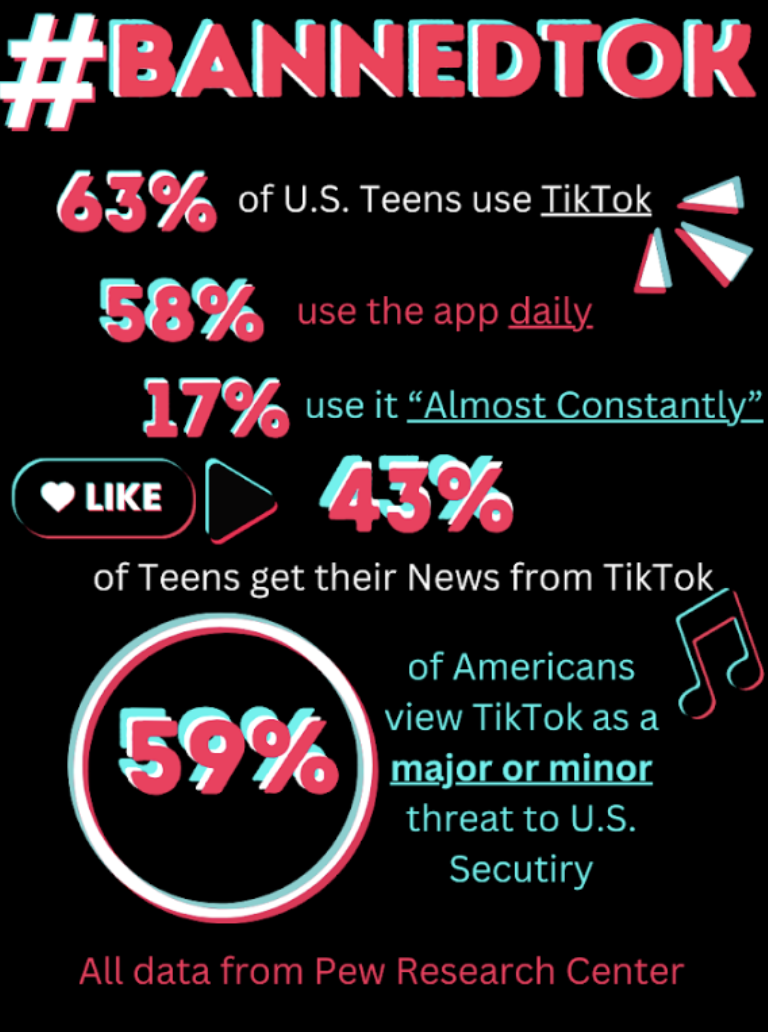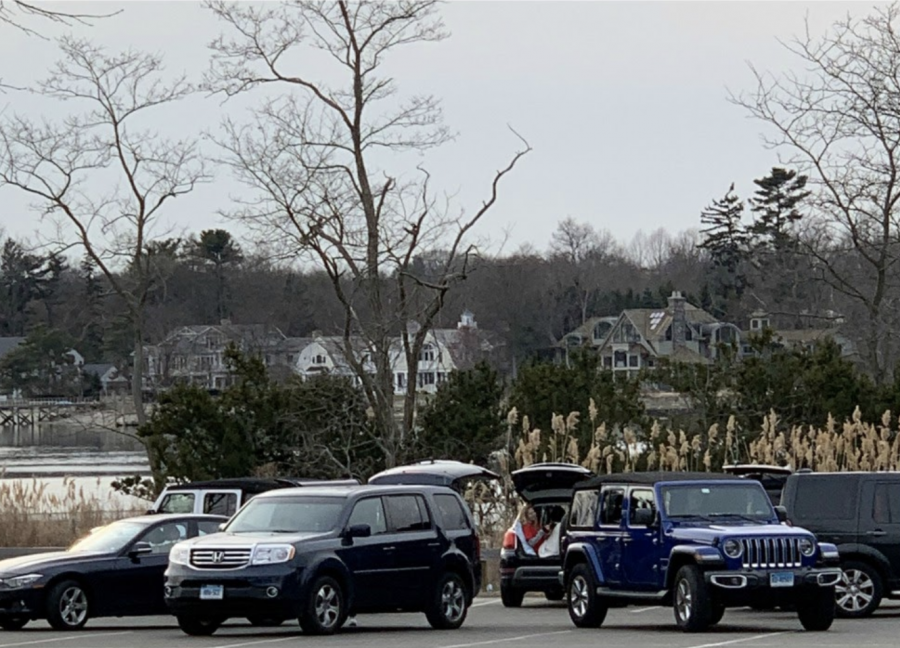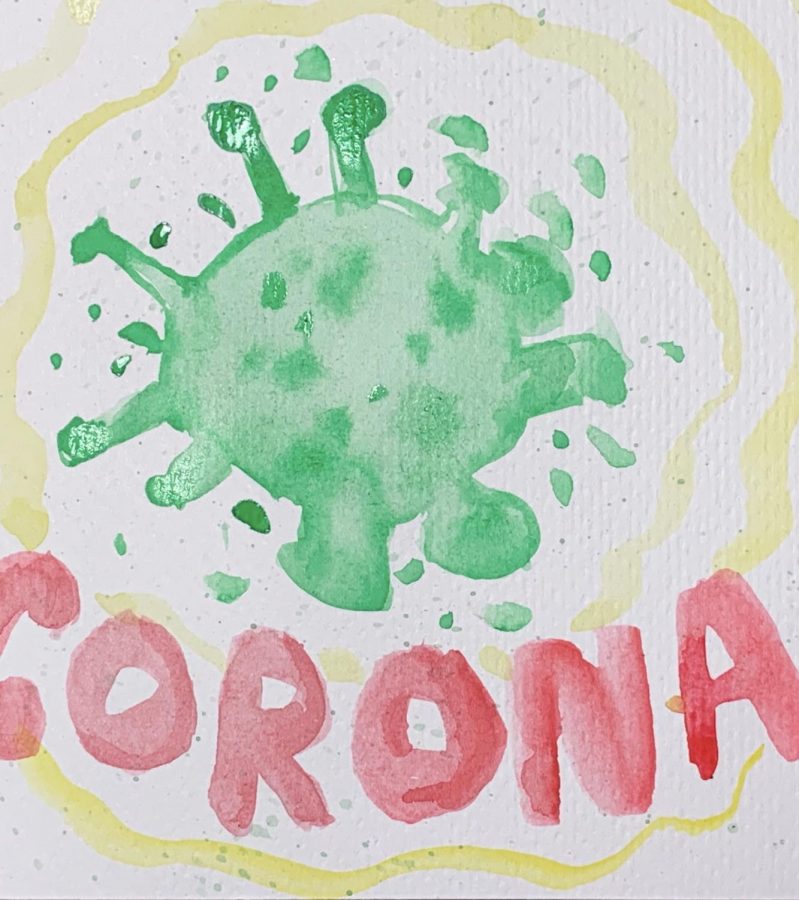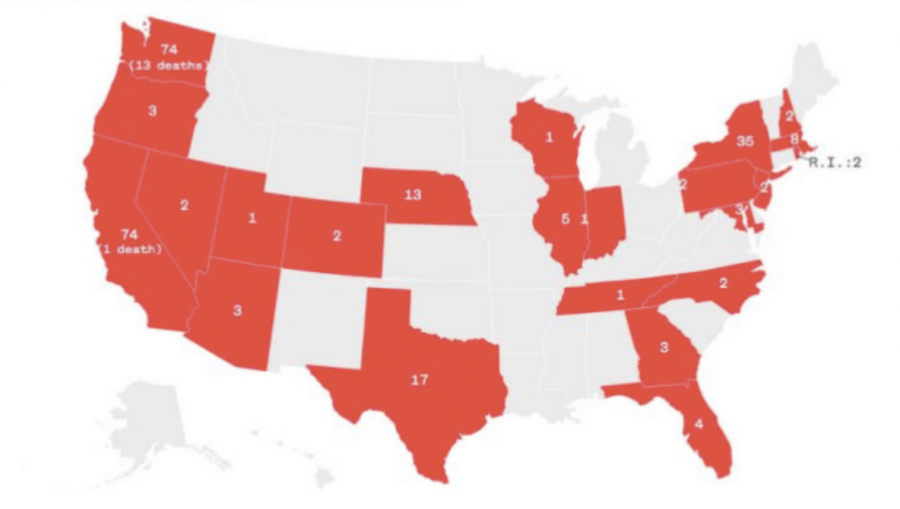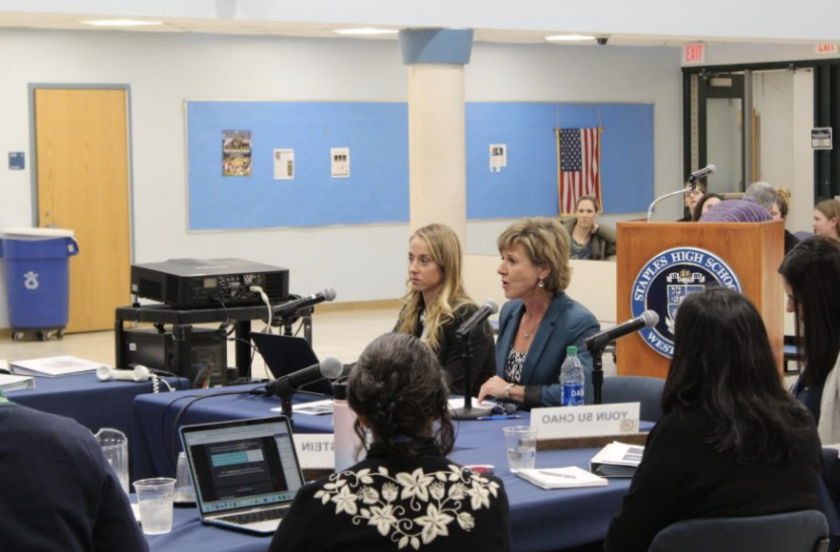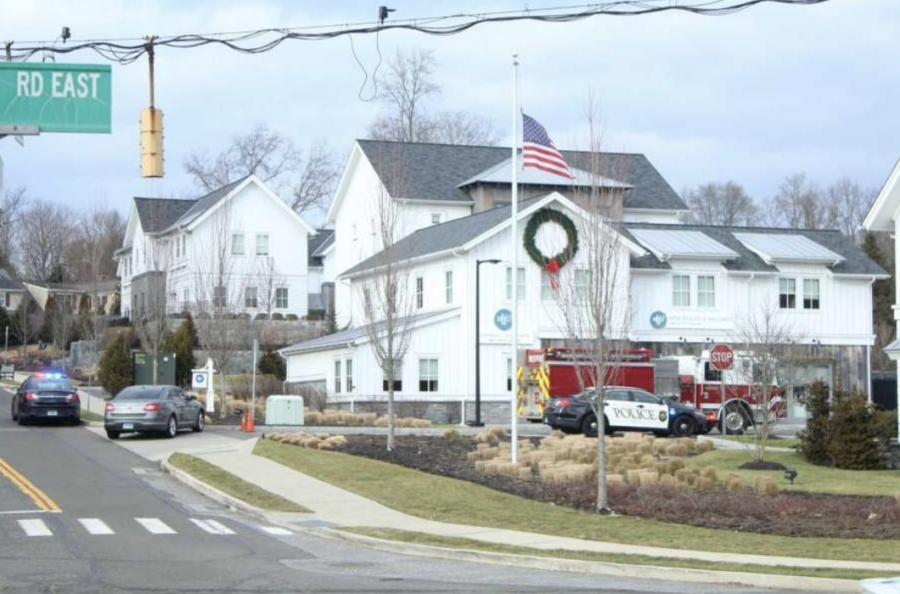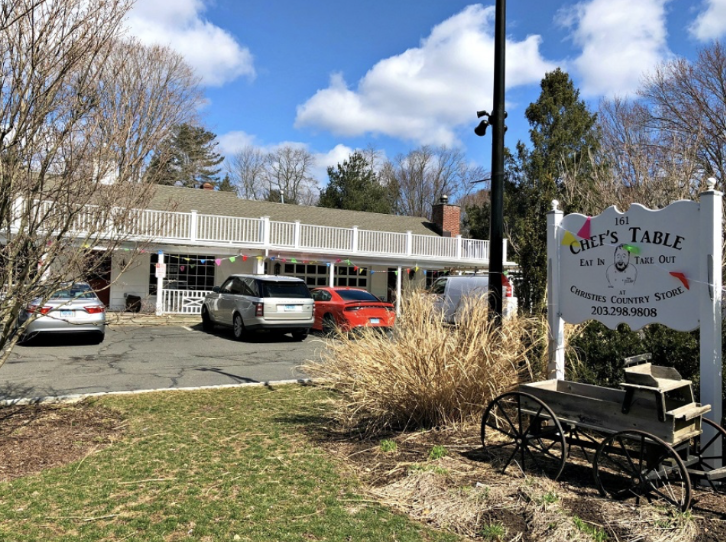In early 2004, I returned home from taking my ninth grade Western Civilizations midterm exam. I didn’t have a second test that day, so I ate my lunch at home–a meatball sub with black olives from Subway–and stared at snowflakes fall to the ground. Football season had ended a few weeks earlier. We had won the state title, so I was feeling very content, although at this point I was happy for some time off. I plopped down onto a couch after finishing my sandwich, and I saw my older brother’s college guidebook splayed open on the coffee table. I flipped to a page near the back, and I read the description of the United States Military Academy at West Point.
Within an hour I decided that in three and a half years, I’d attend West Point for four years, serve at least five years of active duty, and serve three years in the Army reserves. In the coming months, I read more about the institution (including in Absolutely American by David Lipsky, a Rolling Stone reporter who embedded at West Point for four years and who wrote accurately about the experience), and I decided on my fate for the next fifteen years.
Why did I make that decision? As a ninth-grade kid: because I wanted to do something drastic, different, meaningful, and bold. I wouldn’t have articulated it this way at the time, but I was afraid of melancholy indifference. Success in Westport seemed to entail attending the most famous school I could squeak into, learning finance, spending my 20s and 30s as a minion for a bank, and then eventually managing a bank or a hedge fund. But I had a sense of how my family was different from people around me, and that sense would only grow with time.
As I matured–with my future fate in mind–I dwelled on some questions. If I was trying to make the biggest positive contribution to society that I could—which was my goal since some point in middle school—was the military the best option? This was the middle of the war in Iraq; would it be worth getting a limb blown off by a roadside bomb? Death? I read a book called Blood Brothers about an American reporter whose hand was vaporized by a grenade, and it chronicled his recovery. It was sobering, but I knew that Iraq and Afghanistan were not Normandy or Ia Drang.
I also wanted to live up to the example set by my family. Both of my grandfathers served in World War Two, although one died long before I was born. I did remember the other, though, on my dad’s side, who had only died recently. He was wounded multiple times in combat as a sailor. He lied about his age to enlist at 16, and he fought off of the coasts of Normandy, Sicily, and various other Atlantic and Pacific battles. His naval destroyer, the USS Rodman, was attacked by Japanese kamikaze planes, and he witnessed his best friend burn to death. When the war ended, he met my grandmother in Mobile, Alabama. He found work as a machinist in a Mississippi naval shipyard, grinding and shaping steel within precise thousandths-of-an-inch tolerances. And through sweat and sacrifice, the uneducated former sailor rose to lead hundreds. His men regarded him with a heady mixture of fear, respect, and love.
He was what you might call a strict father. My dad would spend his afternoons and summers roofing houses, digging graves, and mowing lawns. In the Goodgame household, taking on a task meant completing it to perfection: one-one-thousandth-of-an-inch perfection. In school, grades other than As were unacceptable. To the surprise of nobody who knew him, my dad combined his father’s stoic grit with his own sense of wonder for the world around him.
My parents are both writers. Perhaps the highest compliment I’ve ever been paid was when my dad told me that I “may yet become an ink-stained wretch.” They met in Florida, as reporters for the Miami Herald, and graduate school and journalism took them all over the world. To their three kids, it has always seemed more difficult to name countries they haven’t been to than it is the other way around. They settled in Los Angeles, then in Washington D.C., and finally Westport, where they continued the business of cultivating healthy senses of wonder in each of us.
Enter Sam. I grew up with the most important advantages the world can offer a child. I came into the world with a loving family that values veracity, hard work and education. My mom decided that raising her children properly took precedence over her own career (at least, until we were older), and she put the well-being of her children above any of her own desires or concerns. I can’t imagine a better parent, and her work is appreciated by those whose opinions matter most: her children, her husband, and God. (She has also recently published a satirical novel about the experience of raising teenagers in a place like Westport; it’s called Frank Went to Yale. I’m biased, but I think it’s hilarious.)
Rooms at home were always stacked to the ceiling with books: books of literature, books about science, books about building and fixing things, books about politics, books about exotic places my parents always seemed to have visited. And we had enough money for me to enjoy my childhood and take advantage of opportunities in a supportive, safe community with good schools. And Labradors. We always had Labradors.
As I got older, and especially after I was able to travel a little bit, I began to ask what I had done to earn any of those blessings. The more I learned about the world, the more I learned that a fishbowl like Westport is actually quite unique. The town felt normal enough, but I came to realize that in the history of humanity, “normal” lives have been solitary, poor, nasty, brutish, and short. My parents never admonished me or attempted to make me feel guilty for what we had, but they did an excellent job at leading their children to ascertain that Westport was an exceptional opportunity–one that we ought not to waste.
So I didn’t want to waste it. I had been given a lot, and military service was a great way to begin to give back to the institutions which had enabled me to live in a place like Westport. I would be protecting the Constitution, which was directly responsible for the meritocratic culture in which my grandparents had achieved social mobility. Plus, I felt like I’d do well in the military, and I realized that it would be a launch pad for whatever I wanted to do afterwards–army or otherwise.
I’ve never looked back. Through West Point, Ranger School, and my current deployment to Afghanistan, I’ve collected experiences and memories that are not available through any other means. Not coincidentally, the experience has been, much of the time, unpleasant. Nobody likes waking up at 5 AM to go running in cold rain. Nobody likes being told what to do or having her freedom restricted.
But what I received in return was far greater than any of its meager cost.
A European economics course took me to Paris, Versailles, Brussels, Luxembourg, Frankfurt, and Berlin–and we were received as dignitaries by ambassadors, foreign generals, academics, and members of society far above my station. I’ll never forget the disbelief I felt when a German Ph.D. took notes as he earnestly asked me–20-year-old Cadet Goodgame, sipping a heffeweisen–about my opinion on the security implications of the EU’s monetary policy.
I spent the rest of my time at the Academy seeking similarly broadening experiences. I led a group of cadets to Chicago to discuss leadership with business, financial, and government moguls. The CEO of one of the biggest banks in town took us through the Chicago Mercantile Exchange, and thousands of stock traders stopped their frantic hand-signaling to applaud. And when the same group went to Washington, I learned about leadership from some of its highest practitioners: the Secretary of Defense, the Chairman of the Joint Chiefs of Staff, and the Deputy Director of the CIA. A fellow cadet and I received a tour of the White House by the Director of the Office of Health Reform, who explained the mechanics of her job candidly over a cup of coffee in the West Wing. When we descended to the Situation Room, an energetic and intelligent man with a pencil resting on his ear explained how the President makes national security decisions. (That man is now the White House Chief of Staff.) Later, we bowled in the basement of the White House, courtesy of President Truman, and I learned that President Obama stocks his fridge with Miller Genuine Draft. And in my final year, I wrote my undergraduate thesis on the role of personal relationships in affairs between the U.S. and China. My gray cadet uniform unlocked interviews with the academics and statesmen at the forefront of the subject, and I learned and grew tremendously.
(It’s also worth mentioning that I didn’t pay for my college education, or for any of the globe-trotting I did while at school. You paid for it. Thank you.)
Despite the occasional grandeur, my most humbling and meaningful experience at West Point was the honor of leading 144 cadets. Any of their problems were my problems, and it was up to me to mold them into the officers that their future soldiers would deserve and require. In fits and starts, I was learning to lead. I experimented, pulling levers and turning gears in order to ignite their passions and their pride. It was my first taste of true leadership, and I was addicted.
Those four years were also an excellent and unique time for addressing some important questions. What constitutes a good person? What is a good life, and how does one lead a good life? I was blessed with friends, mentors, and a handful of absolutely phenomenal teachers who were always concerned with those questions. With my future career in mind, I read Plato, Aristotle, Thucydides, Cicero, Marcus Aurelius, Voltaire, Hobbes, Locke, Madison, and Jefferson. And, in an environment that values honor and honesty above all else, I faced difficult situations that made me apply my ideas to reality. By the time I graduated, I had a firm idea of who I was and what I valued, because I had spent four years forging and adjusting those ideas alongside peers whom I trusted with my life.
After commissioning as a Second Lieutenant, I travelled for a month and then moved to Georgia, where I completed officer training and Ranger School. The latter is a two-month course that I failed twice and ended up completing after five months. Ranger school scrapes the veneer of civilization off of soldiers and tests them in a state of duress. Students walk long distances with heavy weight over mountains, into swamps, and through woods, eating and sleeping just enough to function. Then, with raw fingers and sore backs, their judgment, competence, integrity, and leadership are tested through a battery of simulated raids, ambushes, and other missions.
At West Point, concepts like morality, justice and virtue were complex. Ranger School tested the same ideas, but the exam questions were straightforward: will you help your friend in need, even when you’re so tired that you could sleep in a puddle? Will you volunteer to carry the 26-pound machine gun on the day when you know that your route traverses mountaintops? And perhaps the most important question: will you quit? It’s not uncommon for Ranger students to hallucinate or fall asleep while walking. Some students press their hands against trees, mistaking them for vending machines. Others pass out in bushes and wake up hours later, kilometers away from their patrol. I have a distinct memory of seeing the green infrared-neon world through my night-vision devices–and being absolutely positive that my squadmates were aliens from the Tattooine bar scene in Star Wars. I learned what it means to be truly hungry, tired, and hopeless; to fail; to be told that I was worthless… and to rise above the white noise around me, be the master of my own actions and thoughts, and complete the task at hand regardless of factors outside of my control.
A few months after emerging from the Florida swamps and graduating from training, I found myself leading a platoon in Paktia Province, Afghanistan. Paktia is a historical home for Haqqani and Taliban thugs, and my soldiers and I are currently finishing up our tour here. As the platoon leader, I am responsible for everything that happens or fails to happen in my platoon. We’ve been all over the province, assisting Afghan counterparts in an effort to stabilize this country and make it toxic for the likes of those who would attack our loved ones. I’ve been personally responsible for dozens of American soldiers and tens of millions of dollars of equipment. As a ground force commander for a mission, I coordinate support from technical assets that include Apache helicopters, Warthog Air Force jets, unmanned aircraft, and massive artillery pieces. My communications equipment leverages radio waves and satellites to reach just about anywhere in the world. I’m given a palate of tasks and resources, and it’s my job to harmonize my men and assets in time and space to ensure success. There is no better job.
I’m 24 years old, and I will have accomplished a few of my most important life goals in less than two years since graduating college. But I’m not writing this to communicate that I went to West Point and ran around in woods and deserts and had a grand time. My point is that military service can be an incredible opportunity, and those who take advantage of it can reap the benefits in spades. As I sit in dusty eastern Afghanistan, I can honestly say that there is nothing that I would rather be doing with my life right now than this.
I do not want to recruit anyone to join the Army or apply to the Academy. You either feel called or you don’t–and if you don’t, then you’ll be miserable if you sign up. But for a place that creates so many passionate, intelligent high school graduates, it’s odd that so few take advantage of the opportunity.
I’m also not implying that what I’m doing is somehow superior to other forms of service. It suits me well, and I love it. But my parents are writers, and my brothers are students who won’t do anything related to the military. I learned what service means from them, and although my path took me to Afghanistan, we are all working towards the same goals. Justified use of force is an unfortunate necessity which protects our lives and ideas. My brothers are working to address the causes for the world’s problems; I am working to address the symptoms. At some point, I will join them. In any case, it’s safe to say that all three of us will strive to remain in the arena, each in our own way, spending ourselves in worthy causes.
I am proud to be in the company of many Westporters who, in their own ways, do the same.
Ne Desit Virtus,
Sam

